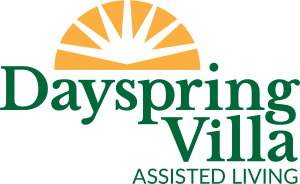As our loved ones age, helping them stay on track with their medications as prescribed can become increasingly challenging. If you’ve ever faced a situation where your parent or loved one refuses or forgets to take their meds, you know how frustrating and concerning it can be.
Difficulties with medication management often arises due to forgetfulness, side effects, or simply a desire for more independence. Understanding these challenges is the first step toward effective senior medication management in maintaining their health and well-being.
Understanding the Challenges of Senior Medication Management
Medication adherence can be a significant challenge for many seniors. Several common factors contribute to these difficulties, including:
can be a significant challenge for many seniors. Several common factors contribute to these difficulties, including:
- Feeling overwhelmed by the number pills they need to take
- Taking incorrect dosages or medications that many no longer by necessary
- Skipping doses or not following prescribed instructions
- Experiencing side effects or adverse drug reactions like confusion, bleeding, or oversedation.
- Emotional barriers, such as fear of dependency or the stigmas associated with aging
Every individual has unique medication needs, these challenges can vary widely. Therefore, it’s important to approach these discussions with empathy, patience, and understanding.
The Mayo Clinic shared the following tips for caregivers to help aging parents or loved ones with medication management:
- Gather Medication Lists – Gather your parents’ medication lists from their healthcare providers and compare them with the medications they have at home to confirm accuracy. Make sure everyone involved understands each medication’s purpose and dosage.
- Utilize Pharmacy Services – Check if the pharmacy offers dose packaging or consider using a medication planner to simplify management.
- Medication Synchronization – Arrange for auto-refills or schedule refills to align medications, reducing the inconvenience of multiple refill dates.
- Access Medical Records – Secure digital access to their medical records for quicker communication with healthcare providers if needed.
- Visit a Pharmacist – Schedule a comprehensive medication review with a pharmacist to assess and adjust their medication regime.
- Consult on Supplements – Talk to a healthcare provider or pharmacist before introducing any new vitamins or supplements to avoid potential interactions.
- Help Develop a Routine with Reminders – Establishing a consistent daily routine can significantly improve medication adherence. Incorporating medication schedules into daily activities helps seniors to remember their doses. If possible, sending or setting up gentle reminders when needed makes it easier to stay on track.

These tips can simplify medication management and make it more effective. However, in some cases, additional support may be necessary to maintain a seniors safety. While many factors play a role in considering a move to an assisted living community, one key benefit is the personalized support and dedicated staff who provide assistance in all aspects of daily life, including medication management.
Senior Medication Management Through Support of Assisted Living
At Dayspring Villa, we recognize that medication management for seniors is vital for their health, well-being, and quality of life. Our assisted living community offers tailored support through trained staff and supervision to ensure residents take their medications safely and effectively.
Some practical strategies that are implemented at Dayspring Villa assisted living community are:
- Personalized Medication Plans – We work closely with healthcare providers to create individualized medication plans that consider each resident’s unique health needs. This collaborative approach ensures that seniors receive the best possible care.
- Staff with Specialized Training – We offer medication management options tailored to each resident’s needs. Some residents are capable of self-administering medications or receive regular reminders, for those who require additional support, our dedicated Qualified Medication Administration Professional (QMAP) staff is available. These team members are trained and will support that resident in taking their prescribed medications promptly. They also will document any concerns or instances where a resident opts not to take their medication. Our priority is the health and well-being of every resident, supported by our qualified and compassionate staff.
- Simplified Communication – Clear communication is crucial. We encourage family members, friends, and team members to engage in regular conversations with residents about medications, discussing any concerns and clarifying the importance of each medication.
- Professional Oversight – Our clinical staff is dedicated to monitoring our residents’ health and medication adherence. Regular check-ins allow us to address any issues promptly and adjust medication plans as necessary.
- Partnership with Family Caregivers – Much like the desire of many assisted living communities, Dayspring Villa sees a huge benefit in encouraging strong relationships between families and residents. Developing two-way communication and getting to know the families of residents allows for open dialogue about any issues or concerns about medication management and a more seamless path to collaborative resolution when necessary.
Senior Medication Management Through Support
Managing medications for seniors doesn’t have to be daunting. With the right strategies and support, caregivers can help their loved ones maintain their independence while ensuring they stay on track with their health. At Dayspring Villa, we are committed to providing the necessary tools and assistance to simplify medication management for seniors, fostering a supportive and caring environment.




